Low-pass filtering point scans from 3/21
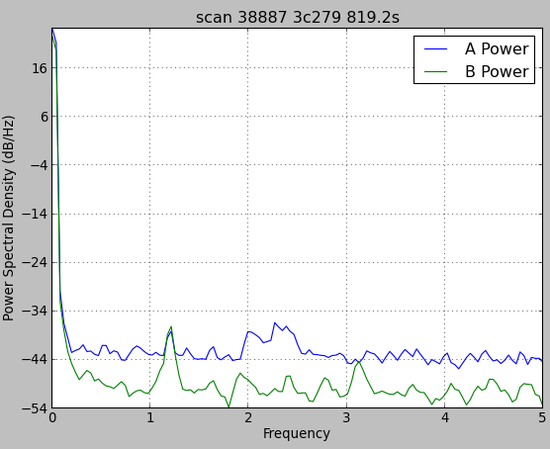
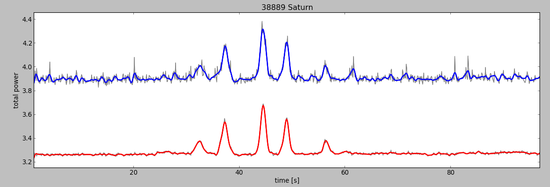
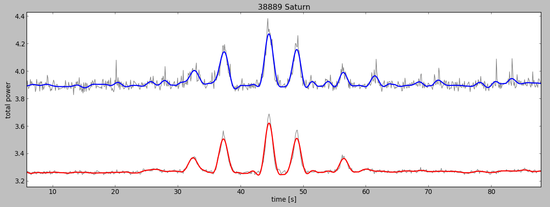
Measuring total power at VLBI backend
- Measure total power using Mark6 recorded 2-bit data by checking 2-bit occupancy
- There is a time offset (4.5s) between the scan time and that reported in the total power files (leap seconds?)
- Assumed every packet was exactly 8 microseconds, and used 31250 = 0.25s per integration.
- Same time offset in A and B channels (IF0 and IF1)
- IF0 and APower are both noisy (Saturn scan)
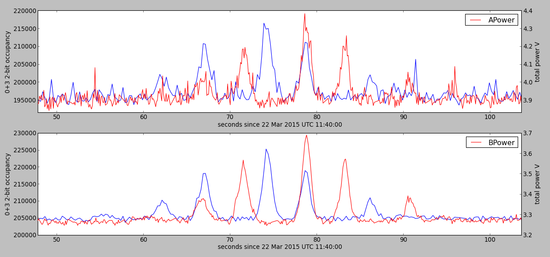
- Time aligned (added 4.5s to Mark6 time)
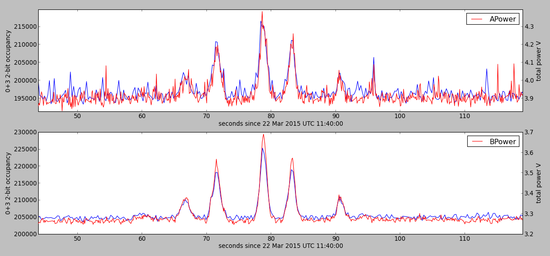
- Measure total power using Mark6 eht3 and eth5 packets by checking 2-bit occupancy
- Measure total power using R2DBE regular 8-bit snapshots as fast as possible
- Measure total power using custom R2DBE bitcode
3/22/2015
- Tried some simple detrending (splines) plus high-pass filtering
- Made cleaner images, but not able to find any 3C279 in scans
- I think the detrending is too aggressive, will work on some ad-hoc methods to make this more robust against DC level in the transit signal
- Ideally the background estimation would be different for every hypthoetical signal position.
Forward model fitting into time domain
- useful for dealing with regions of spectrum that have both signal and noise contributions
- starting beam width of 10 (arcsec, FWHM?)
- can characterize noise as stationary?
- how to get good local estimate of power spectrum?
Averaging multiple scans
Detrending with splines or high-pass filter





